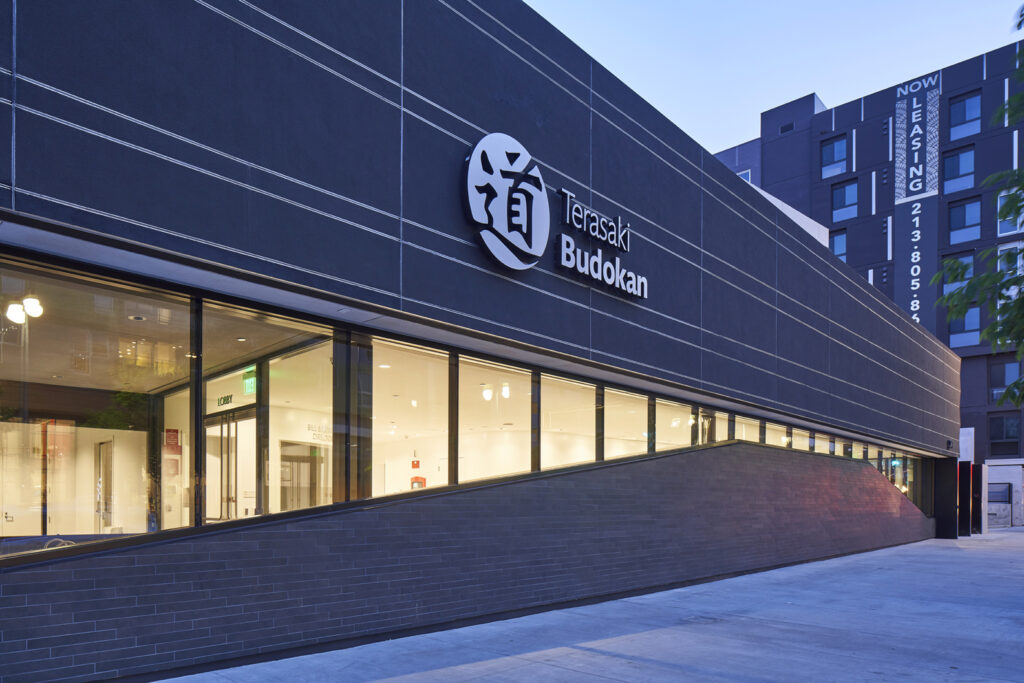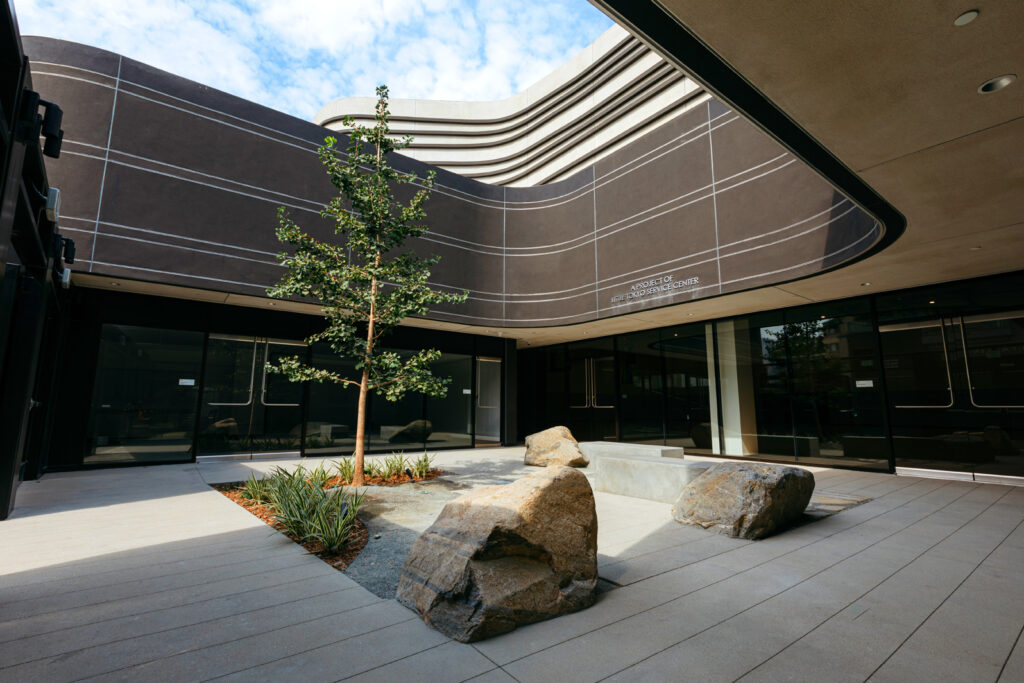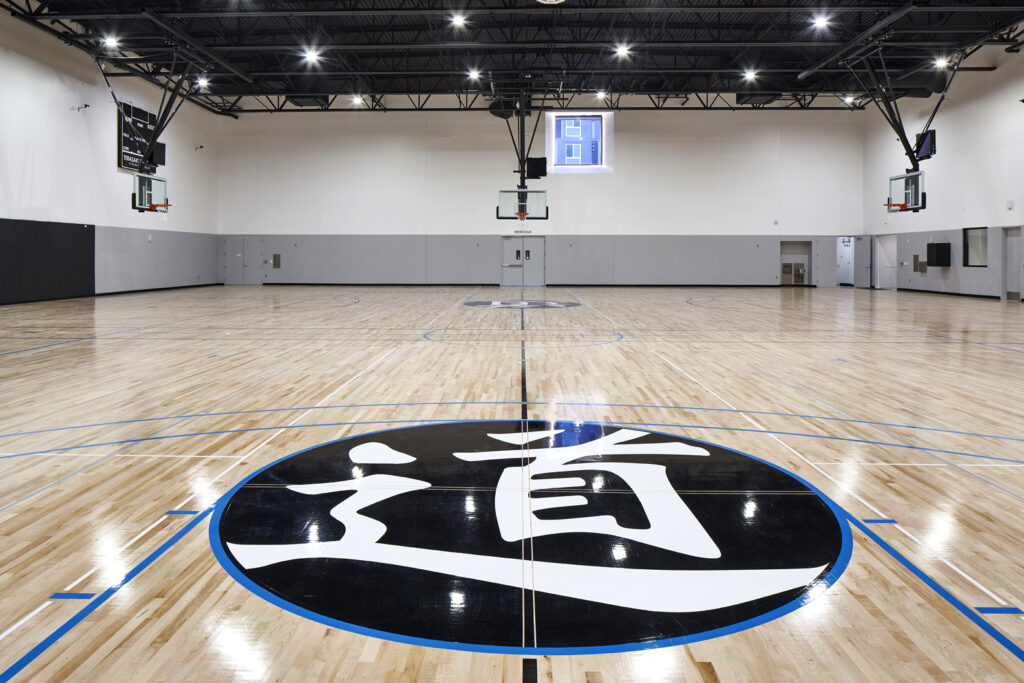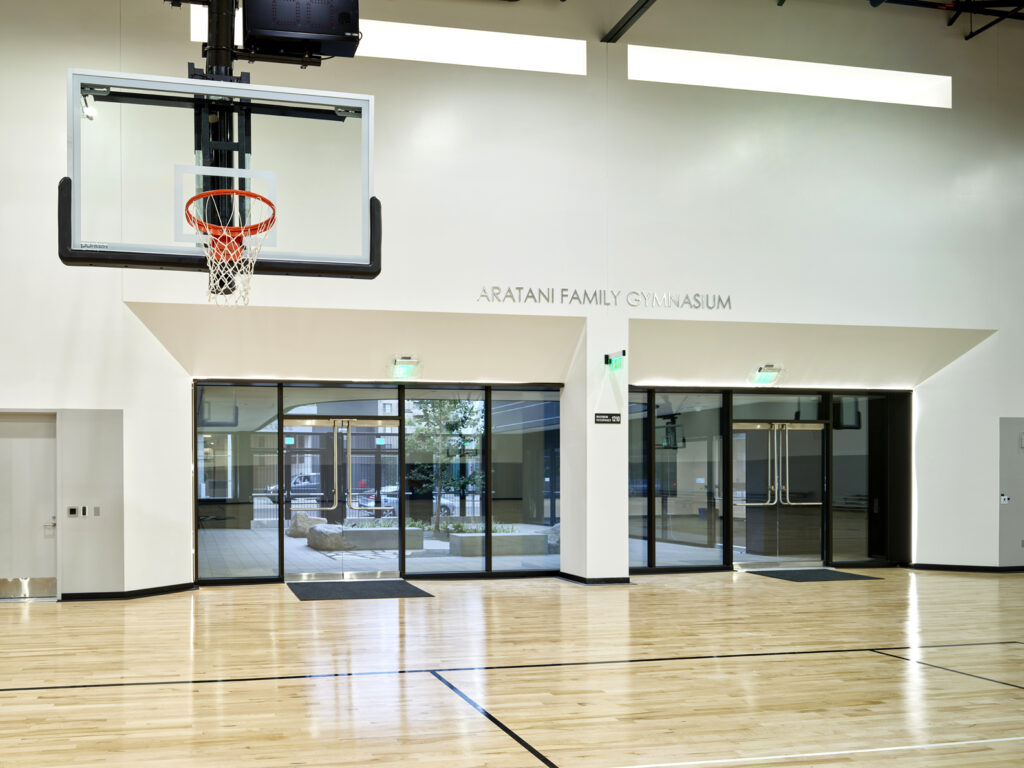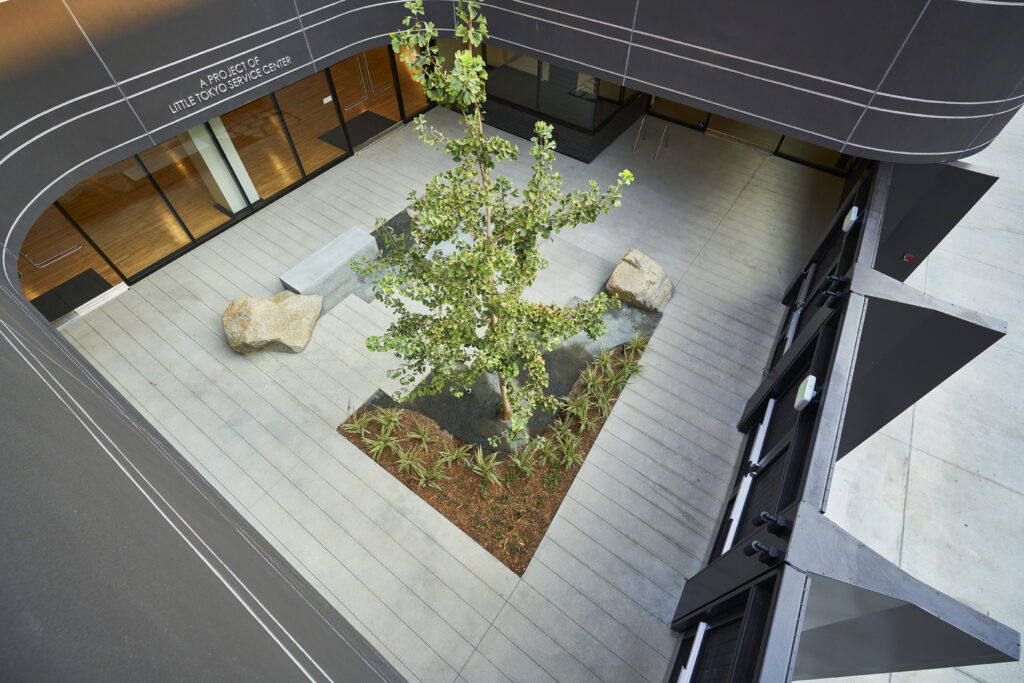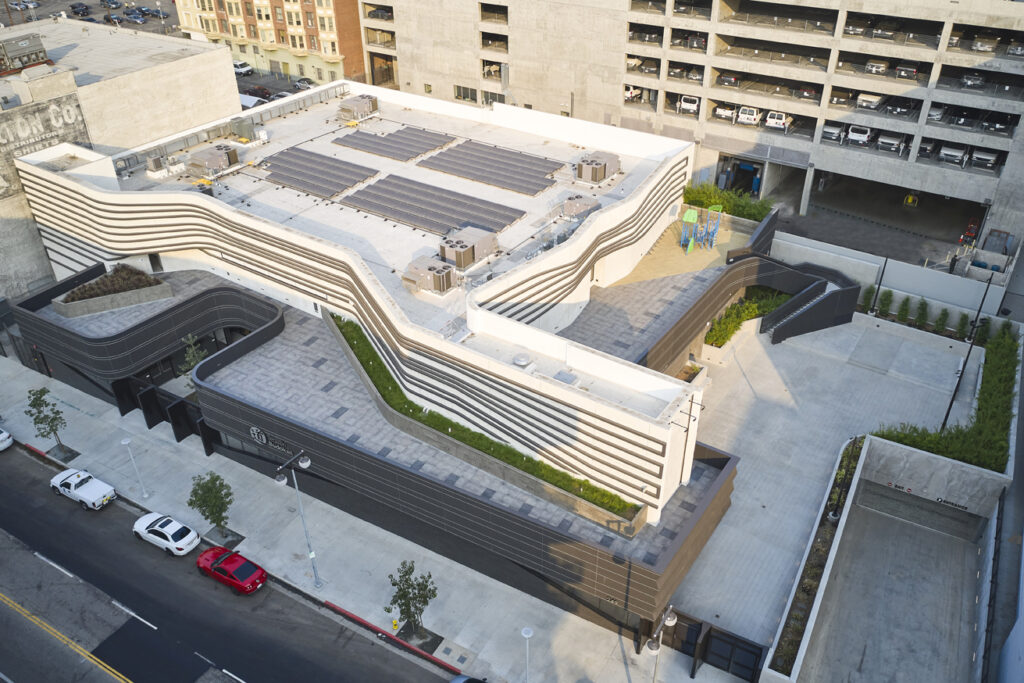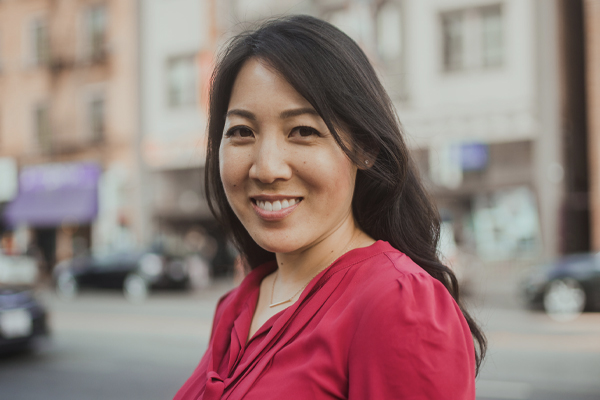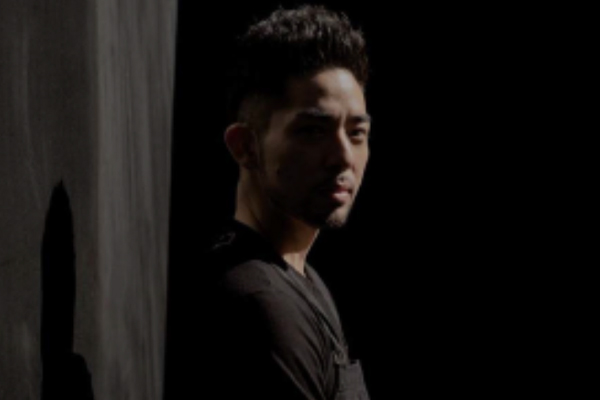Who we interviewed with……
Mr. Ryan Lee
Born and raised in South Pasadena, Ryan Lee is the Director of Terasaki Budokan. He enjoys playing basketball, golf, and having jam sessions with friends, but his true passion lies in working with non-profit organizations. Terasaki Budokan is more than a community recreation center but symbolically stands for the growth and prosperity of Little Tokyo and the surrounding neighborhoods.
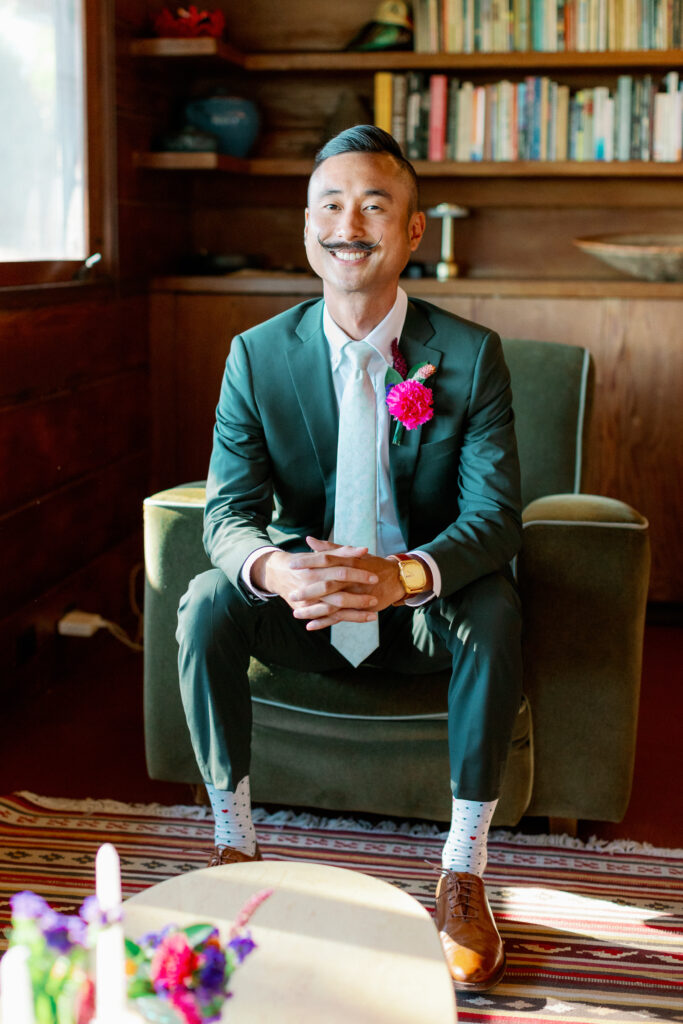
Mr. Ryan Lee, the Director of Little Tokyo’s first multi-purpose facility, Terasaki Budokan, passionately says, “We want to provide a place where everyone can come together, meet their neighbors, get to know each other, and take their memories of this community center with them forever.”
Terasaki Budokan was built as one of the projects of Little Tokyo Service Center (LTSC), a non-profit organization that has been active for over 40 years, to provide the recreational and community space needed by everyone: residents of the Little Tokyo neighborhood, visitors to the area, other interested parties, businesses, non-profit organizations, and religious organizations.
The building was originally scheduled to open in 2018, but due to COVID-19, it eventually opened in 2020. Ryan recalled the journey to the opening of Budokan, “We have come a long way. I think what makes this project so unique is the number of challenges and difficulties we have faced over the years.”
Little Tokyo is an urban, densely populated area. Building a large facility in such a location was not easy. Finding the right place and environment for construction and raising $34 million, the cost to build the facility, was one of the first huge obstacles that LTSC had to overcome, which they did.
However, what they truly demonstrated in overcoming so many obstacles were the resilience, grit, and tenacity of not only their organization but the community. They never lost faith in their ability to ensure that this project was going to be accomplished because they were quite sure of the value, energy, and vitality it would bring to Little Tokyo and to future generations.
Ryan says it was even more rewarding and gratifying to see it finally come to fruition. The pandemic caused them to deviate from the original business plan, and they had to deal with everything else that came with the pandemic. But he recalls that Budokan was able to deal with the pandemic and manage the situation nimbly and quickly. For example, they opened the place, so they could give vaccination and booster shots to the elderly in the neighborhood, and Budokan’s gym was even used as a polling place for the 2020 elections and the 2022 general election.
Even though social distancing gave us all a hard time gathering people together and stopped many programs from happening, Budokan was able to hold the space for the community in a different way.
Budokan’s existence was surely something beneficial to many situations of COVID-19 and helped many people during the pandemic. In an unexpected time this building was used in an unexpected way. However, Ryan disagrees that it was unexpected.
“I don’t think COVID-19 brought Budokan any changes. As a community center, I would say our primary goal is to serve the community. So, whether people were in need of the building for special occasions, or the building was used normally, I still think we have been true to our mission of providing.”
We offered him an interview because we wanted to discover the importance and characteristics of “Little Tokyo” as a place since JapanUp! magazine is having a special issue featuring Little Tokyo. We heard that 25 years ago, Little Tokyo was not a safe place. Thus, we asked him a question, “From your point of view, what was Little Tokyo like in the past, and what is it now?” Which he answered with great sincerity: “Safety is a relative term. So, the environment in which one feels safe may differ from person to person. For me, Little Tokyo has always been safe. Because Little Tokyo is my home, where I live, where I work, and where I spent a lot of time in my childhood.”
For him, Little Tokyo has always been an embracing, open, diverse, and inclusive community. He always felt he had his own home there. He has never felt unsafe in this community.
To give back to the community, he chose to become the Director of Budokan. He wanted to be involved in any way, either as a director, a staff member, a user of the facility, or a supporter.
For him, it’s not just about a job or a salary; it’s a passion project. It is what keeps him motivated.
On the other hand, if you look at Little Tokyo in terms of location, you can see that it is located on Skid Row and near Downtown LA.
The statement on their website is descriptive: “It will be a place where youth living in low-income housing operated by LTSC and other low-income youth living on Skid Row and in downtown Los Angeles can come together to participate in after-school programs, study, and enjoy physical activities.”
Ryan states again and again that their mission is to contribute to the community. In the term “community,” he means not only Little Tokyo but also the adjacent communities of Skid Row, the Arts District, Chinatown, Downtown LA, Echo Park, etc.
As a community center, they believe they must serve every community.
The homeless crisis particularly affects many neighborhoods. It is quite important to Budokan to provide a place where everyone can feel welcome, safe, and included. To that end, Budokan is honored to host the Skid Row 3-on-3 basketball tournament this Fall, inviting members of the Skid Row community to come to Budokan and make memories there. And through that, they aim to broaden the community.
Ryan says they hope to build healthy community partnerships with other institutions, such as the Skid Row community, and do more work that will have a long-term impact.
When we asked him how he thinks Little Tokyo will change in the future, he laughed and said it will be up to the next generation, and that one of the things they are focusing on at Budokan is to continue to invest in Little Tokyo as a whole and to involve young leaders in the process.
They will ultimately succeed in creating leadership opportunities to envision and shape the next 10, 20, and 30 years of Little Tokyo.
LTSC offers social services in a variety of languages, such as Japanese, Korean, Chinese, and Spanish. They are also working to expand their services in other languages. The organization has developed over 1,000 units of affordable housing in the greater southern California area and provides wrap-around services to low-income residents. Additionally, they offer childcare services and a young adult mental health initiative called Changing Tides.
If you haven’t been to Budokan yet, Ryan says he encourages you to visit. The staff is very friendly. They are open every day except holidays.
Ryan is always there to greet you with a mustache that looks like a big smile!
【Special Interview 2023】”Key People” in Little Tokyo

